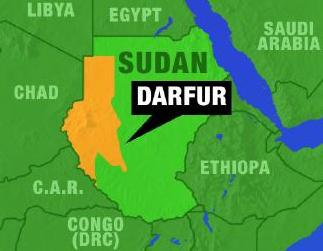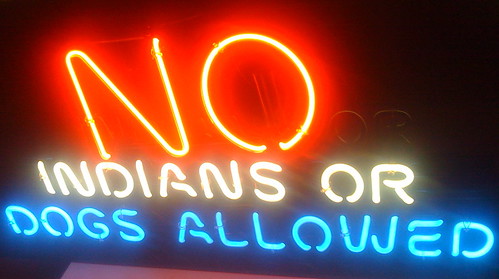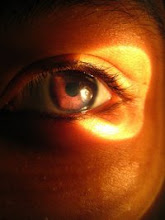 We live in a world of distortion therefore we should extract adequate knowledge before making the delicate choice of spirituality. However it is quite evident that missionaries, as Christians, provide biased knowledge of what they think is right or wrong. I sometimes feel that they are 'advertising' their religion, which is quite immoral.
We live in a world of distortion therefore we should extract adequate knowledge before making the delicate choice of spirituality. However it is quite evident that missionaries, as Christians, provide biased knowledge of what they think is right or wrong. I sometimes feel that they are 'advertising' their religion, which is quite immoral.Every Saturday night a knock on my door. A Korean girl, with a bible in her hand, standing outside. I am tired of listening to her tedious ongoing 'messages' from God, yet she keeps coming. I know that her intentions are good but her approach is irritating. It is like a scary hand trying to get hold of me. Have I ever preached from the 'Geetanjali' to Christians?
 I believe that missionaries are good individuals with pure hearts. They seek out to serve God. However they need to realize that they cannot force religion on other cultures. In a modern society, someone does not need to be a Christian to know that cannibalism is wrong. So a person does not need to be a missionary to improve other cultures. Moreover missionaries enter a location with the mindset of converting people, which upsets me the most. I don't believe that a person needs to be a missionary to improve society. Personally, I think that if a tribe has to be exposed to twentieth century they have the right to know every other perspective, religion and belief. They do not deserve to be biased by a certain religious group.
I believe that missionaries are good individuals with pure hearts. They seek out to serve God. However they need to realize that they cannot force religion on other cultures. In a modern society, someone does not need to be a Christian to know that cannibalism is wrong. So a person does not need to be a missionary to improve other cultures. Moreover missionaries enter a location with the mindset of converting people, which upsets me the most. I don't believe that a person needs to be a missionary to improve society. Personally, I think that if a tribe has to be exposed to twentieth century they have the right to know every other perspective, religion and belief. They do not deserve to be biased by a certain religious group. 
 Similarly other religions such as Islam imply 'holy war' on individuals to convert them. It is basically like 'become Muslim or die.' I read a book called 'She said yes' which is based on a true story of a young girl. When terrorists entered her high school, she hid under a table and started praying. After a while she realized that she was looking down the barrel of a gun. They asked her, “Do you believe in God?”. She said yes. They took her life. This book impacted me a lot because her mom wrote about her dead daughter's faith, which was the reason was killed. This reminded me of the part in the where it read, “When Fray Diego de Landa, a Catholic missionary accompany in Spanish forces in the New World, discovered extensive Maya libraries, he knew what to do. He burned them all, an event, he said, the Maya regretted to an amazing degree, and which caused them much affliction.” Clearly, some missionaries interpret the Bible inaccurately, just as the Muslims interpret the literal meaning of 'holy war' as stated in the Koran. Furthermore I think that Don Richardson uses an exaggerated analogy when he writes, “It’s true that we destroy certain things in cultures, just as doctors sometimes must destroy certain things in a human body if a patient is to live.” There are non-Christians in this world who don't necessarily require a spiritual 'doctor' to live.
Similarly other religions such as Islam imply 'holy war' on individuals to convert them. It is basically like 'become Muslim or die.' I read a book called 'She said yes' which is based on a true story of a young girl. When terrorists entered her high school, she hid under a table and started praying. After a while she realized that she was looking down the barrel of a gun. They asked her, “Do you believe in God?”. She said yes. They took her life. This book impacted me a lot because her mom wrote about her dead daughter's faith, which was the reason was killed. This reminded me of the part in the where it read, “When Fray Diego de Landa, a Catholic missionary accompany in Spanish forces in the New World, discovered extensive Maya libraries, he knew what to do. He burned them all, an event, he said, the Maya regretted to an amazing degree, and which caused them much affliction.” Clearly, some missionaries interpret the Bible inaccurately, just as the Muslims interpret the literal meaning of 'holy war' as stated in the Koran. Furthermore I think that Don Richardson uses an exaggerated analogy when he writes, “It’s true that we destroy certain things in cultures, just as doctors sometimes must destroy certain things in a human body if a patient is to live.” There are non-Christians in this world who don't necessarily require a spiritual 'doctor' to live. Therefore I think that evangelizing is a flawed concept and missionaries' mindset should be to improve society instead of portray religion. If Christians want to improve a culture they should educate tribes with knowledge of everything distinguished. To decide on what to believe you need to know, because once you open your eyes to knowledge, you will find where to look.





